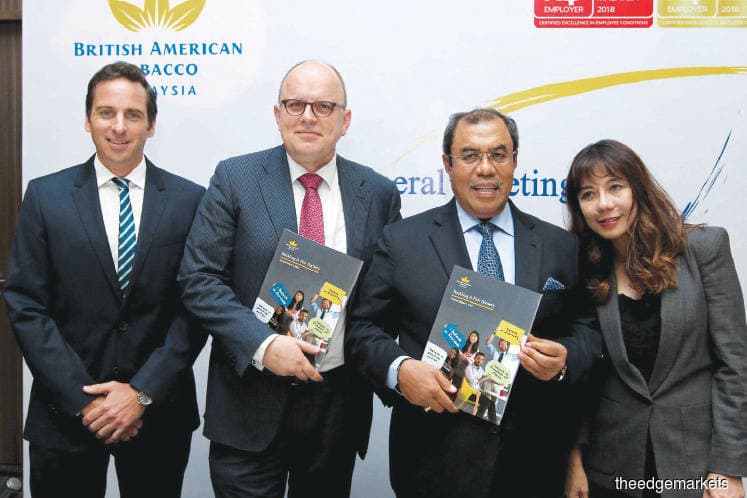
This article first appeared in The Edge Financial Daily on April 20, 2018
KUALA LUMPUR: British American Tobacco (Malaysia) Bhd (BAT Malaysia) said it will hold off any plan to introduce e-cigarettes or other reduced-harm products in Malaysia until there are clear regulations on these products.
“We are a bit concerned that if we do introduce these products, the regulatory framework would not be as sharp (clear) as they should be,” BAT Malaysia group managing director Erik Stoel told a media briefing after the group’s annual general meeting yesterday.
Guidelines are needed on the excise duties that must be paid for such products, as well as the marketing restrictions associated with them, he added.
“Fundamentally, we think that if we can sell potentially reduced- harm products to consumers in Malaysia then we should,” he said, adding that it is the “right” thing to do since these products may have less severe health effects on users.
BAT launched Glo, a tobacco- heating device, in Japan in May last year, and has a “very good product portfolio” in Europe’s strong vaping market currently, Stoel said.
He said BAT Malaysia would ultimately like to launch similar products here but it “first wants to see a good regulatory framework that ensures we don’t end up in the same situation two years ago concerning vaping”.
In 2015, several states in Malaysia had banned the sale of e-cigarettes after the National Fatwa Council ruled that vaping was forbidden in Islam.
Introducing such reduced-harm products may be the lifeline needed by tobacco companies in Malaysia, which have seen their market size and subsequently their earnings, squeezed by the market for illegal cigarettes.
BAT Malaysia’s share price has taken a beating, falling 47.4% over the past year to close at RM24.72 yesterday. But it was the top gainer on Bursa Malaysia yesterday and ended the trading session with a market value of RM7.18 billion.
“There is a correlation between our share price and the size of the legal market, which fell to 41.7% in 2017,” said BAT Malaysia group chief financial officer Ricardo Guardo.
Comparatively, the illegal market has grown to 58.3% last year from 52.5% in 2016, said Stoel.
“Tobacco consumption by Malaysians rose to an all-time high last year and was largely fuelled by illicit trade,” he added.
Going forward, any growth in the group’s revenue and earnings will largely depend on measures the government takes to crack down on illegal trade, he noted.
“We are confident enough to say we will continue delivering growth in the legal market, but ultimately it boils down to the measures the government will take against illegal cigarette trade,” he said, adding that the group is committed to working with the authorities to come up with a solution.
However, Stoel stressed that enforcement against illicit trade should not only depend on action by the Royal Customs Department and coastguards, and the ministry of health, the Malaysia Marine Enforcement Agency and the domestic police force are among the other government agencies that also have a role to play in combating the issue.
BAT Malaysia saw its net profit decline 34% to a 17-year low last year at RM479.69 million, while revenue declined 20% to RM3 billion on the back of a shrinking legal tobacco market.
Despite the disappointing results, BAT Malaysia saw its share of the legal domestic tobacco market grow 1.4% year-on-year to 54.6% last year.